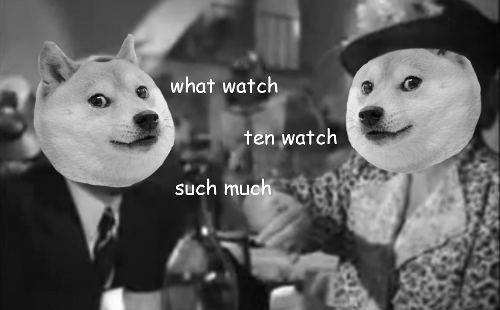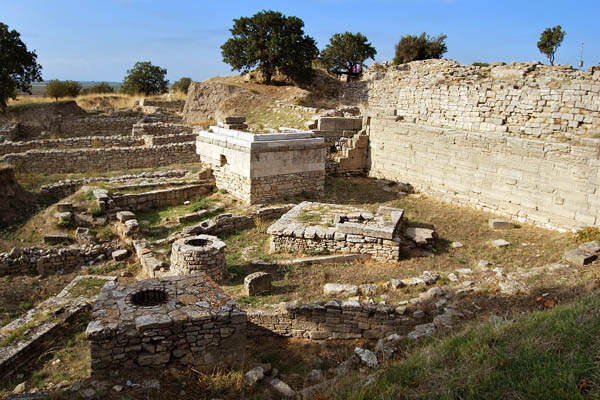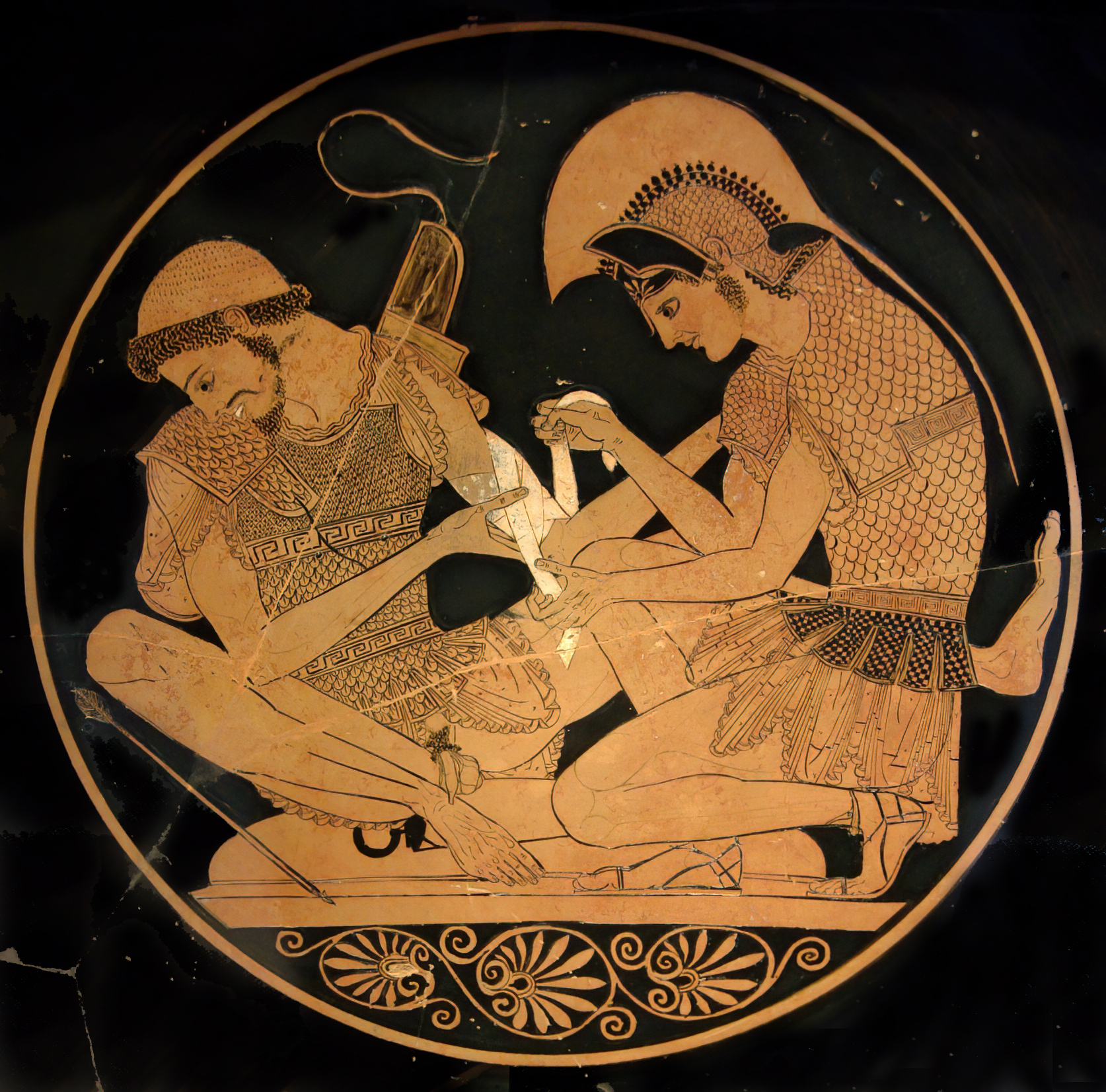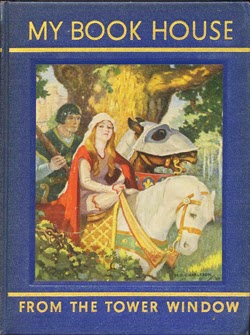This evening I told at the Ottawa StoryTellers'
Stories and Tea series. I told a Norse story I was calling "The Giants' Contest" and another storyteller,
Mary Wiggin, told a Japanese folk tale called "Three Strong Women."
Afterward, a few people came up to me and asked me things about where my story came from, and how I had adapted it. It wasn't a particularly common or familiar Norse legend, so I even had people asking if I'd written it (although, what does that mean in the context of telling a legend? I suppose the words were mine, but what happened in the story wasn't, at least mostly not: see, it's complicated).
So I thought I'd write about where I got that story, and something about what I did with it before finally standing up to tell it tonight.
It began when Mary and I met a while back, to talk about what we were going to do at tonight's show. At the time I didn't really know what I wanted to tell: I knew that the theme was folk tales, and I haven't really dealt with that material much. So Mary told me about her story, "Three Strong Women," which is about a sumo wrestler, Forever Mountain, who winds up training with a family of three women who are strong enough to carry cows around and throw entire trees.
As she was telling me about the grandmother who wrestles with Forever Mountain as a training exercise, I suddenly remembered a story I loved as a child. It was in a collection of twelve books, the
My Book House Books, which had belonged to my mother when
she was a child. They were first published in 1920, although I think my mother's set was from 1937. The collection started with a volume of nursery rhymes and poems for little children, and then each successive volume aimed at a higher age group and reading level, until somewhere in the middle was a volume of myths and fairytales from around the world. In that volume, there was a story that I still remembered, at least in part: a story in which the Norse thunder god, Thor, finds himself in a castle full of giants. There was a drinking horn that he couldn't finish, and a cat he couldn't lift off the floor, and an old woman who defeated him in a wrestling match.
I mentioned it to Mary, and she said she thought it would work well for the show. So then I had to go home and try to find the story (I don't have the Book House Books, they're at my parents' place).
The Internet is awesome. After a quick search, I found where the story had originally appeared: in the
Gylfaginning, the first section of the
Prose Edda, written (or compiled) in Iceland, sometime in the early 13th century, by Snorri Sturluson. So then I went looking for the full text (
which is here.)
The
Gylfaginning is long, and the story is only a short(ish) section, but it wasn't hard to find with a skim. I was looking for Thor, after all, and there he was:
"Then spake Gangleri: 'A good ship is Skídbladnir, but very great magic must have been used upon it before it got to be so fashioned. Has Thor never experienced such a thing, that he has found in his path somewhat so mighty or so powerful that it has overmatched him through strength of magic?' Then said Hárr: 'Few men, I ween, are able to tell of this; yet many a thing has seemed to him hard to overcome. Though there may have been something so powerful or strong that Thor might not have succeeded in winning the victory, yet it is not necessary to speak of it; because there are many examples to prove, and because all are bound to believe, that Thor is mightiest.'"
And after this came the story, about the giants and the contest. And it started with another short bit that I had remembered, without remembering that it was in the same tale: a story where Thor and Loki, staying at a farmer's house, slaughter Thor's goats and eat them, and then Thor revives them in the morning, only to discover that the farmer's son, Thjálfi, had cut open one of the leg bones and sucked out the marrow, so that one of the goats is lame. In fear for their lives, the farmer and his wife give Thor the son and his sister Röskva as servants.
I printed out the section that told the story - the goats, and then Thor encountering a giant named Skrýmir, and the contest in the castle named Útgardr. But you can tell from the segment above that the story was full of "thees" and "thous," and there was no way I was going to tell it like that.
So I took the printout of the story - about five or six pages - and went through a process of reading one chunk of the action, then looking up and saying it out loud to myself, with slightly elevated language but without the extreme archaisms. I would do that a few times, until I thought I had a way of saying what happened that caught the details but didn't sound like this:
"Thereupon Skrýmir slept and snored hard, and Thor took the provision-bag and set about to unloose it; but such things must be told as will seem incredible: he got no knot loosened and no thong-end stirred, so as to be looser than before. When he saw that this work might not avail, then he became angered, gripped the hammer Mjöllnir in both hands, and strode with great strides to that place where Skrýmir lay, and smote him in the head."
Instead, I would say something like:
"And Skrýmir rolled over and went to sleep. Thor went to the provision-bag, but something very strange happened: no matter what he did, he couldn't get the knots open. They seemed simple enough, but no matter how he tugged and pushed and pulled, not a thong would budge. He even tried cutting it, but nothing worked. And realizing that he must have been tricked somehow by the giant, he grabbed his hammer, went up to where Skrýmir lay sleeping, swung the hammer up and brought it down as hard as he could on the giant's head."
I spent at least one night - very late at night, actually; I think it was about two or three in the morning - walking around my living room doing this. After an hour or two, I had the whole thing reworked in my head into my own words, and I went back to bed.
After that, I turned the story over a little in my head, and retold it out loud to myself a few times. I had initially tried to include, in my introduction of Thor, the bit from earlier in the
Gylfaginning about his three marvelous items: the hammer, the iron gloves, and the belt that confers his strength. (I also thought I might include the names of his goats: Tooth-Gnasher and Tooth-Gritter.) But then I cut that: everyone knows Mjöllnir, and the other items aren't important.
And I thought about where I could get away with adding lines. Where I could add a line to get a laugh, for one thing, or to create a through line of Thor getting increasingly angry and frustrated as he loses contest after contest. But also, there were things I couldn't explain using only the words in the story: why on earth would Thor agree to travel with a giant, for example? So I put in lines, knowing what I knew about Thor, to explain that.
I also put in some dialogue for Loki, in part because otherwise he's only there to get into an eating contest with the personification of Wildfire, and in part because people are familiar with the
Tom Hiddleston/
Marvel Loki, who is a lot of fun, and I wanted to give this Loki some character too. Mostly, what I put in was variations on "I
told you so, Thor."
I wanted to keep the question-and-answer stuff, where Gangleri asks about Thor and gets hedged answers, and then finally the story of the time Thor encountered something that he couldn't defeat. So I made sure there was a line in my intro that alluded to this exchange:
"Then spake Jafnhárr: 'We have heard say concerning some matters which seem to us incredible, but here sits one near at hand who will know how to tell true tidings of this. Therefore thou must believe that he will not lie for the first time now, who never lied before.' Gangleri said: 'Here will I stand and listen, if any answer is forthcoming to this word; but otherwise I pronounce you overcome, if ye cannot tell that which I ask you.'
Then spake Thridi: 'Now it is evident that he is resolved to know this matter, though it seem not to us a pleasant thing to tell.'"
It wasn't much but I put it in: I said something like, "Now you might assume that given his fame and his reputation, that there had never been anything in all the worlds, or all his long life, that Thor had not been able to defeat, through strength or magic. You might assume that. But you would be wrong. There was once. And although he might not want me to tell you the story, I can tell it."
I'm not sure why keeping that little piece in mattered to me so much, except that I love the ancient question-and-answer tradition that runs through so much northern European myth (the Celts do it too) and I wanted to honour it a little (not that my listeners would even have noticed).
The other big change came a day or two before the show, when I realized that really, I didn't need Röskva at all. She does nothing in the story. She's Thjálfi's sister, she's given to Thor as a servant after Thjálfi lames one of Thor's goats, but she doesn't have a part in the contests, and the story was running long anyway. I could cut the entire goat episode and lose nothing. And if I cut the goat episode there was no reason to have Röskva. Out she went, and I threw in a line to say, "And there was a reason that Thjálfi was traveling with Thor and serving him: but that's another story."
(Thank you
Michael Ende, for giving me the easy use of "That's another story and will be told another time." I used it again at the end: "Thor thought about this often in the years that followed, and planned to bring about another meeting - not with the King of Utgard, but with the Midgard Serpent. And eventually he did: but that's another story.")
So now I had a story, about thirty minutes long. And although it was a little different each time I told it out loud to myself, walking around my house, I thought I had the main beats down. I knew what happened, and everyone's names. I knew which lines I needed to include, and which could be forgotten or changed without hurting the story. I knew the through-line I wanted to take, and how I wanted to play the Giant King (or Útgarda-Loki, as he was called in the original, although I got rid of that right away: with a character called Loki in a contest against another called Logi, the last thing I needed was yet another variant of the name). I knew where I'd throw in modern speech patterns and where I'd be using more archaic language.
I made the mistake, though, of going online to look into some more background, the day of the show, and finding a slightly different version of my story, in the
Wikipedia entry on Loki.
It threw me. It was compressed: it left out whole sections, it took place over a shorter period of time. I read it, and for a second thought of trying to incorporate some of the differences, because they shortened things up and, it appeared for a moment, tightened and clarified some events.
Bad idea.
I tried once, telling the story over again to myself, and incorporating the changes I wanted to add: it messed me up. I had to banish that version, and remind myself that my version was actually
in the
Prose Edda, while the Wikipedia version came from who knew where. And tell my version over again to myself, just to consolidate it in my head.
On the way to the show, I remembered that I had forgotten, in the last few retellings, to include one crucial bit: when Thor and his friends meet the giant Skrýmir, after he wakes and sits up, he says, "What? Have you dragged off my glove?" and then reaches out and picks it up, at which point Thor realizes that what he thought was a house was actually the giant's glove. I'd left it out in
all my last rehearsals. So I told myself that part over and over on the way to the show: and I'm glad I did, because the first "Ah!" I heard from the audience was when I got to that part.
And of course, when I told it at the Tea Party, it came out completely different than all the ways I'd rehearsed it to myself. Totally different. When I start telling a story like this one, where the events are set but the words are more or less mine, I always find that standing there talking to an audience changes it. Shortens it, in some places: clarifies and sharpens it in others. The times I'd told it to myself were much more uniform: the way I told it to a room full of people varied a lot more. But still, I think the way I had wanted to tell it stayed constant. If anything, the ears listening make me less likely to wander or trap myself in what I think of as 'sludge words' - when you start talking without really knowing where you're going next, and almost always wind up in a dead end. I don't do that so much when the pressure is on, when there are people listening.
I was asked on the way out about copyright. Well - with this, because what I'm telling is basically from the
Prose Edda, I don't worry about copyright. The work is 700 years old. If I'd been telling it word for word from someone's translation? Sure, I'd have been responsible for copyright. But because of how I work with material like this, it was essentially my own interpretation. Copyright is a murky and weird thing with storytellers, but thankfully, when you're working from 700-year-old material, you get a lot more free rein.
Oh, and for my first actual foray into traditional myth? It was
fun. I may have to dig up some more old Norse material and see what I can do with it. . .












